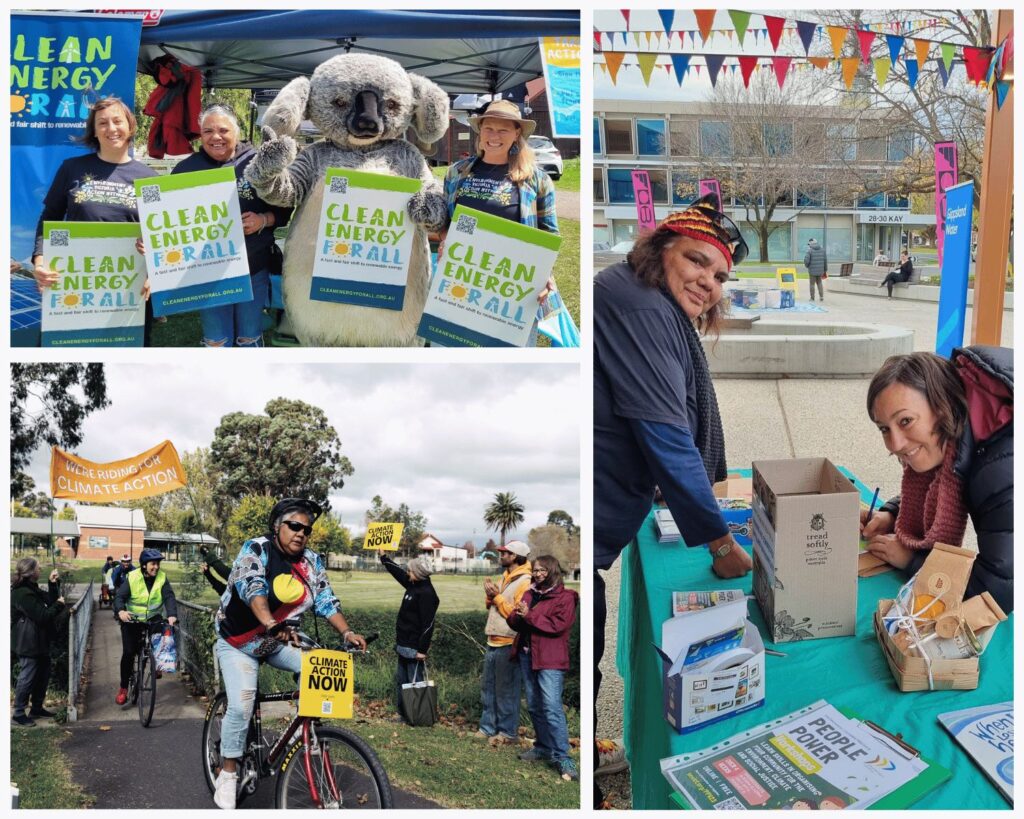I’m from Kurnai Gunai Land, and Monero Country in East Gippsland. I live in Sale and I’m a proud Aboriginal woman.
NAIDOC, for me, means a great celebration – and a chance to be allowed to celebrate the deadlyness in our communities. Reflecting on NAIDOC Week, I think about celebration, togetherness and worthiness.
I think it’s a great theme this year to recognise our Elders. I can only speak on behalf of what my Aunties do, but they do great, positive stuff within their community. They inspire the next generation and I think that’s the role of an Elder. When an Elder does that really well, it just filters down to a great, positive community.
Being Koori, I feel that if I want to go to Dreamtime, I’ve got to do something to preserve the environment in some form or manner – considering that one of our Lores is to maintain our land.
Electra performing one of her poems, called Dreamtime 08.
To be truthful, it really, really hurts to see the environment in such a ‘halfway there, halfway not’ situation. And I think the water does really affect me. Everyone knows that water is life. Without water, you don’t have a good, fulfilled, healthy life.
Back in 1889, to create a permanent entry for ships coming from the ocean, they opened the mouth of Lakes Entrance. Now because of the constant dredging that has been required to keep that open, there is an increased inflow of saltwater into the natural freshwater lake system within Gippsland. This has had a really big effect on our local environment.
So you have to consider the native animals within that region that were quite happily living there, like us, for a very, very long time. Suddenly, they were exposed to all that salt water that they weren’t used to.
This hotspot of fishing and bird watching, it’s just declined in the last 50 years. I really believe it’s because there’s salt in the water and there’s not enough natural flows coming through to be able to do its natural job.
In the last 200 years or whatnot, we’ve just gone full speed with the engineering, with the farming and things like that. I’m not saying it’s wrong. But everything has its limits, and we have to understand that – and we need to step back a bit.
I think it’s only polite to recognise Aboriginal people, because we are the people of the land here, which as we know is scientifically proven that we had a sustainable way of living.
I’m only doing little steps because there’s so much. But it’s all about learning and being open to learning. I think if you have all that in the ingredients with other people, maybe we can make a little bit of an impact – even if it’s only little steps.
I can only hope that a new generation are growing, and are really conscious of the environment and really want to make a change. My grandchildren motivate me, my children motivate me. I feel I just want a better environment for my grandchildren to grow up in.

Electra and the Gippsland Action Network